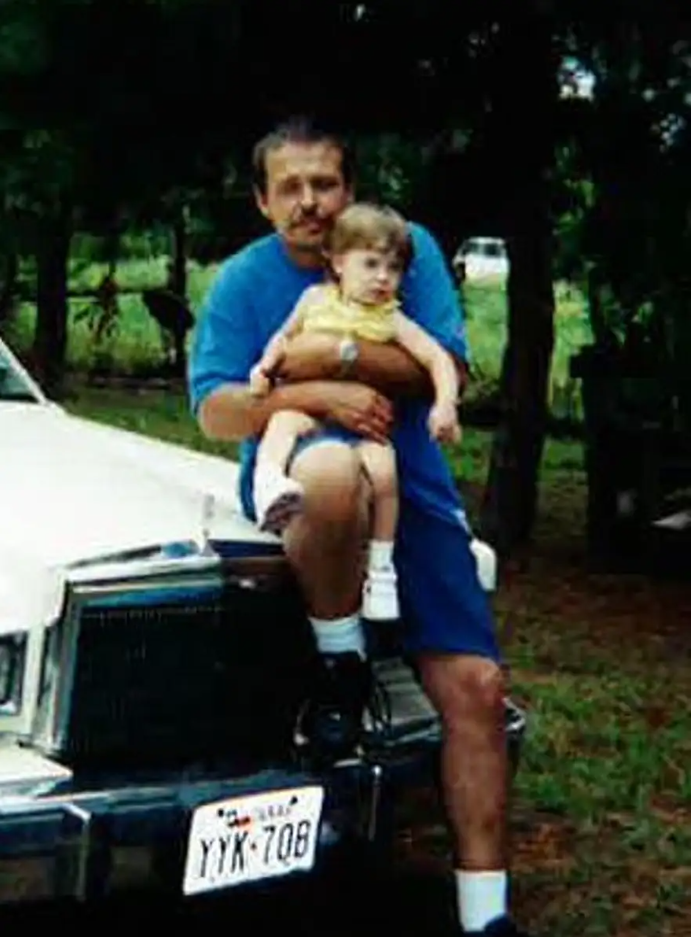Texas is poised to execute Robert Roberson on Thursday, marking a pivotal moment in the nation's debate over the validity of shaken baby syndrome as a cause of death. Roberson, convicted in 2003 for the death of his 2-year-old daughter, Nikki, has consistently maintained his innocence, arguing that his daughter's death was due to illness rather than abuse. His case has drawn widespread attention and support from medical experts, lawmakers, and advocacy groups, as concerns grow over the scientific basis of his conviction.
Roberson, 57, is scheduled to receive a lethal injection at 6 p.m. local time at the Texas State Penitentiary in Huntsville. His legal team continues to seek intervention from Governor Greg Abbott or the U.S. Supreme Court, arguing that the science behind his conviction has been discredited since his trial. Despite these efforts, the Texas Board of Pardons and Paroles unanimously declined to recommend clemency on Wednesday, leaving the governor with the option of issuing a one-time, 30-day reprieve.
The controversy surrounding Roberson's case stems from the diagnosis of shaken baby syndrome, which prosecutors used to argue that he violently shook Nikki, causing brain trauma and retinal hemorrhaging-known as "the triad." At the time of the trial, these symptoms were widely regarded as definitive evidence of abuse. However, medical experts now caution that various factors, including infections and pre-existing conditions, can produce similar symptoms. In 2009, the American Academy of Pediatrics broadened the classification to "abusive head trauma" to encompass causes beyond shaking alone.
"This is an innocent man, beyond question," said Brian Wharton, the retired detective who originally arrested Roberson. Wharton, who testified against him in 2003, has since become one of his most vocal advocates. "I was so focused on finding an offender and convicting someone that I did not see Robert," Wharton testified at a recent hearing before Texas lawmakers. "He's an innocent man, and we are very close to killing him for something he did not do."
Roberson's defense argues that critical evidence was overlooked during his trial. Medical records show Nikki had visited the hospital over 40 times in her short life, suffering from various ailments, including a 104.5-degree fever just two days before her death. Despite these signs, doctors and law enforcement at the time concluded that abuse was the cause. Roberson, who was later diagnosed with autism spectrum disorder in 2018, attributes his stoic behavior during the emergency to his condition. His defense team also points to his undiagnosed brain injury as a factor in his behavior.
The case has galvanized a bipartisan coalition of state lawmakers, medical experts, and advocacy groups, including prominent scientists and autism organizations. On Wednesday, more than 116,000 signatures were delivered to Governor Abbott's office, urging him to halt the execution. The Texas Committee on Criminal Jurisprudence held an extraordinary session, during which they subpoenaed Roberson to testify on October 21, questioning the validity of his conviction under the state's "junk science writ."
"It's an unprecedented step, but it's necessary," said state Rep. Jeff Leach, a Republican member of the committee. "The law that the legislature passed and our governor signed into law is being ignored by our courts, and all we're seeking to do here is to push the pause button to make sure that it's enforced."
The committee's intervention underscores broader concerns about the use of shaken baby syndrome in criminal cases. According to the National Registry of Exonerations, 34 individuals have been exonerated in similar cases since 1992. Roberson's attorney, Gretchen Sween, has argued that the new scientific understanding of abusive head trauma should compel the courts to reexamine his case.
The courts, however, have not been swayed. On Wednesday, the Texas Court of Criminal Appeals rejected Roberson's latest appeal on procedural grounds, refusing to review the merits of his claims. The state of Texas has urged the U.S. Supreme Court to deny his emergency appeal, asserting that Roberson has had ample opportunity to present his evidence in previous proceedings.
"This case highlights the inherent risk of capital punishment-an innocent person could be put to death," said Sween. "The courts have not fully considered the evidence that could prove his innocence."
Despite these setbacks, Roberson's advocates remain determined. Wharton, who has become a Methodist pastor, expressed his commitment to stand by Roberson. "If he's asked me to be there, I owe him that much," Wharton told reporters.
Roberson's execution would be the first in the United States involving a conviction based on shaken baby syndrome. His attorneys argue that more needs to be done to scrutinize such cases, given the evolving scientific perspective. Recent studies have challenged the reliability of diagnosing abusive head trauma based solely on physical symptoms, with courts across the country increasingly overturning such convictions.
The American Academy of Pediatrics still supports shaken baby syndrome as a valid diagnosis, but experts acknowledge the complexity of determining abuse based solely on physical evidence. "It's about protecting children, and that's a priority," said Dr. Antoinette Laskey, chair of the academy's Council on Child Abuse and Neglect. "We have to be thorough, but the legal controversy cannot undermine the safety of children."




